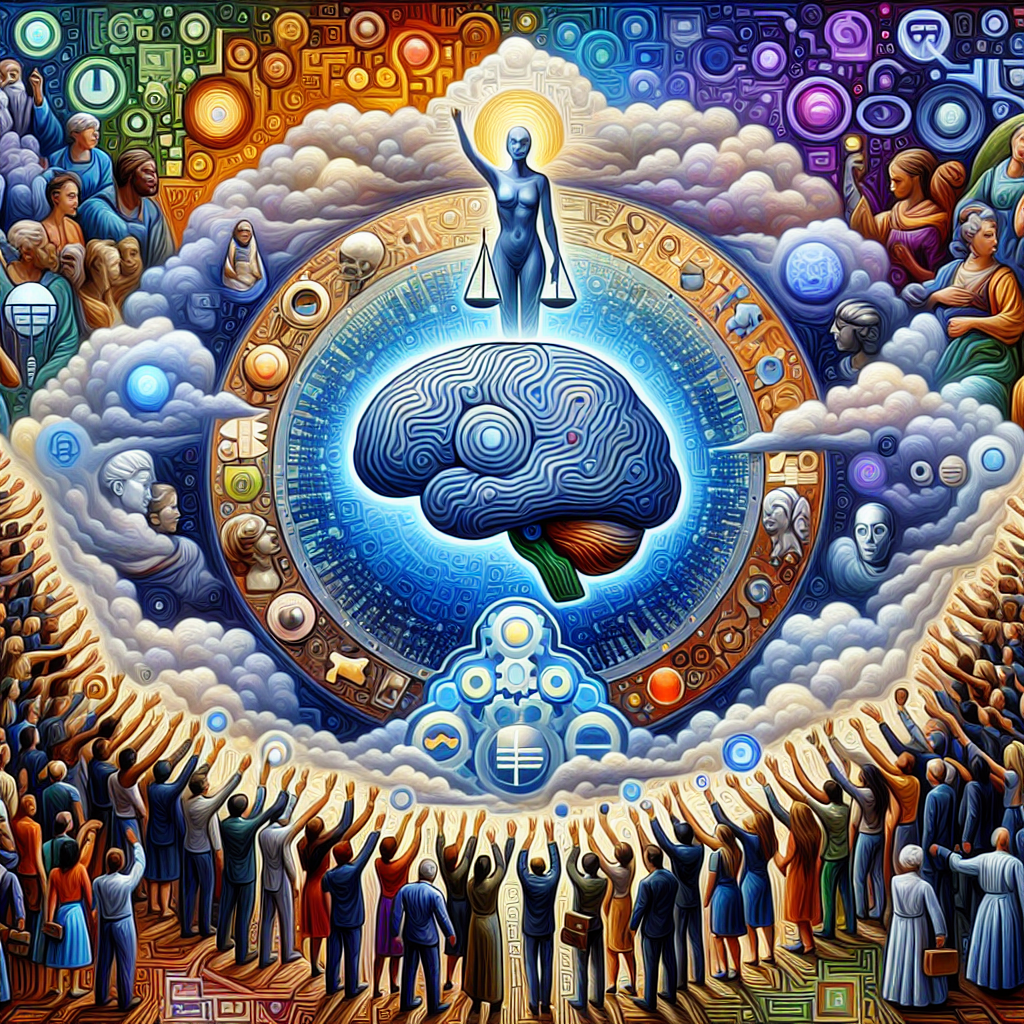Artificial intelligence (AI) is revolutionizing the way we live and work, with its applications becoming increasingly widespread and accessible. From virtual assistants like Siri and Alexa to autonomous vehicles and predictive analytics, AI is transforming industries and shaping our future. However, for many years, AI was seen as a complex and specialized technology that only a select few could understand and utilize. This has changed with the rise of democratized technology, making AI accessible to everyone.
The democratization of AI refers to the trend of making AI tools and technologies more accessible to a wider audience, beyond just data scientists and engineers. This shift is driven by advancements in AI algorithms, cloud computing, and user-friendly interfaces, making it easier for non-experts to leverage AI for various applications. As a result, businesses, governments, and individuals can now harness the power of AI to solve complex problems, improve decision-making, and enhance productivity.
One of the key drivers of the democratization of AI is the availability of AI platforms and tools that simplify the development and deployment of AI applications. Companies like Google, Microsoft, and Amazon offer cloud-based AI services that allow users to build and deploy AI models without the need for extensive technical expertise. These platforms provide pre-trained models, APIs, and tools for tasks such as natural language processing, image recognition, and predictive analytics, enabling users to quickly develop AI applications.
Another factor contributing to the democratization of AI is the increasing adoption of AI in consumer products and services. Virtual assistants like Siri and Alexa have become ubiquitous in smartphones and smart speakers, providing users with personalized recommendations, information, and entertainment. AI-powered features are also integrated into social media platforms, e-commerce websites, and streaming services, enhancing user experiences and driving engagement.
The rise of AI for everyone is also fueled by the growing demand for AI skills in the workforce. As AI becomes more prevalent in industries such as healthcare, finance, and retail, there is a need for professionals who can understand and apply AI technologies in their roles. To meet this demand, online platforms like Coursera, Udacity, and edX offer AI courses and certifications that cater to individuals with diverse backgrounds and skill levels. These courses cover topics such as machine learning, deep learning, and data science, providing learners with the knowledge and skills needed to work with AI.
The democratization of AI is not without its challenges, however. One of the main concerns is the ethical implications of AI, including bias in algorithms, privacy concerns, and job displacement. As AI becomes more pervasive in society, there is a need for regulations and guidelines to ensure that AI technologies are developed and used responsibly. Companies and governments must also address issues related to data privacy, security, and transparency to build trust and confidence in AI systems.
Despite these challenges, the democratization of AI presents numerous opportunities for innovation and growth. By making AI more accessible and inclusive, we can empower individuals and organizations to leverage AI for social good, economic development, and sustainable solutions. From improving healthcare outcomes and reducing environmental impact to enhancing customer experiences and driving business growth, AI has the potential to transform industries and improve the quality of life for people around the world.
In conclusion, the rise of democratized technology is democratizing AI and unlocking its potential for everyone. By making AI tools and technologies more accessible, user-friendly, and ethical, we can harness the power of AI to address complex challenges, drive innovation, and create a more inclusive and sustainable future. As AI continues to evolve and permeate all aspects of society, it is essential for us to embrace this transformation and work together to ensure that AI benefits everyone.
FAQs:
Q: What is the difference between AI and machine learning?
A: AI is a broad field of computer science that aims to create machines that can perform tasks that typically require human intelligence, such as speech recognition, decision-making, and problem-solving. Machine learning is a subset of AI that focuses on developing algorithms that can learn from data and improve their performance over time.
Q: How can I learn AI skills?
A: There are numerous online courses, tutorials, and resources available for individuals who want to learn AI skills. Platforms like Coursera, Udacity, and edX offer AI courses taught by industry experts and academics. Additionally, there are open-source libraries and tools like TensorFlow and scikit-learn that can help you get started with AI programming.
Q: What are some examples of AI applications?
A: AI is used in a wide range of applications across industries, including healthcare (diagnosis and treatment planning), finance (fraud detection and risk assessment), transportation (autonomous vehicles), and marketing (personalized recommendations). Virtual assistants like Siri and Alexa, chatbots, and predictive analytics are also common examples of AI applications.
Q: How can businesses leverage AI?
A: Businesses can leverage AI in various ways to improve operations, enhance customer experiences, and drive growth. AI can be used for tasks such as data analysis, forecasting, customer segmentation, and personalized marketing. By integrating AI into their processes and products, businesses can gain insights, automate tasks, and make better decisions based on data-driven intelligence.

